Everything you ever wanted to know about Ahad Raza Mir – in his own words
From his emotional side to his life in Canada, Ahad has lots to share... and you might just fall in love
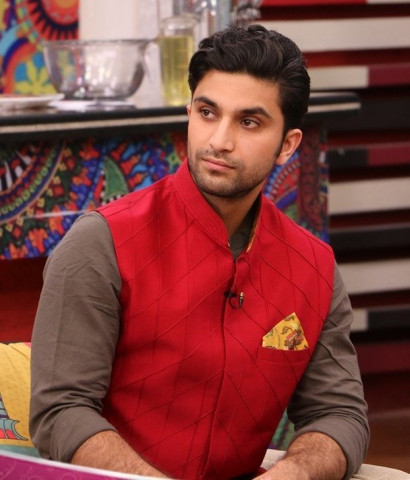
Everything you ever wanted to know about Ahad Raza Mir – in his own words
Written by Farhat Ishtiaq who has also penned Diyaar e Dil, Humsafar and Udaari - and directed by cinematographer turned director Shahzad Kashmiri, Yaqeen Ka Safar had a star ensemble cast with Sajal Aly, Shaz Khan, Hira Salman and audiences’ current heartthrob Ahad Raza Mir. Sajal and Ahad’s pairing gained a steady cult following as their story helped Yaqeen Ka Safar become an instant hit.
Sajal plays Dr Zubia, a girl with a haunted past and who is destined to be with but Dr Asfandyar, who has a tortured past too - but in a completely different way. The chemistry of the lead pair became a hit and Ahad, for whom YKS is just his second play, became Pakistan’s new crush.
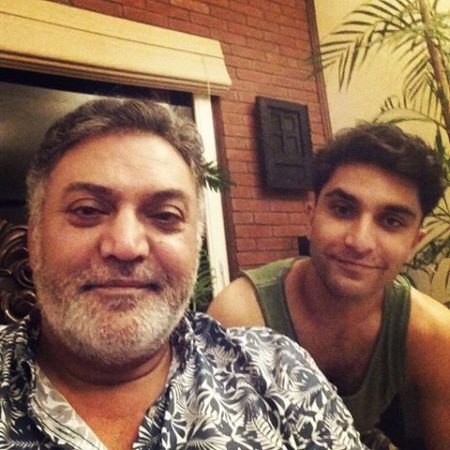
Ahad is veteran actor Asif Raza Mir’s son but that is not what Ahad relies on to become a successful actor or what he wants to be his claim to fame. According to Ahad, his father instilled in him good values and Ahad went on to learn and study acting, drama and theatre in Canada, where he grew up. He returned to Pakistan to pursue it by working hard and proving himself worthy. Here he talks about his character, Dr Asfandyar Khan, who is coping with a tragic past and heartbreak but also learns to fall in love with his colleague Dr Zubia (Sajal).
ET: What do you do to get into the zone of your character? Are you a character actor? Is there a method to how you get into this zone?
Ahad : Acting is something you can’t take too seriously. Everyone has their own method/process. Whether they look at the text, whether they go into the character, whatever it might be. I personally believe in not taking it too seriously. When you take it too seriously you take the fun out of it. When you take the fun out of it, you take the authenticity out of it. That being said, when it’s a ‘heavy’ scene, I don’t like distractions. And this is something that Shehzad (Kashmiri) has drilled into me. I think about my own life – but my process is about the journey. You look at a character and think, “Who is this person when I met them – and who are they when I’m leaving them?” And how they’ve morphed within you. I can talk about how Asfi became Asfandyar but I actually don’t know. Asfandyaar would often come home to me, within me. I’d be quiet and wouldn’t really say much. It just kind of sits inside you. When I play a character for a while, they always stay there. When I went to shoot my film, I was in the same mood. And the director told me, hey this isn’t Dr Asfandyar. It just depends on the character. You have to invest in it. I like to memorise scripts. I am the crazy person who shows up early on the set, has the first 12 episodes memorised. People would be like, “Here you go, this is the scene you can read,” and Id’ be like yeah I know this already. Sometimes here, you get the scene like an hour before or something. And I’m not a big fan of that – because when you suddenly get the text, you get confused. So that’s my process – openly and not too seriously. During my theatre training, a lot of the actors were method actors, who just won’t drop the character at all. I do have a little bit of that – so much so that when the shoot starts, the character is there and it only goes away when the play ends.
Brad Pitt once said in an interview that he had locked himself in a room for 12 Monkeys to get into that zone.
I know that I’ve said you can’t take your art too seriously – but those are the kind of characters that you can’t do unless you go through that kind of preparation or experience. Those are the kind of the things you have to experience to do that role.
Yes, maybe like The Revenant. If you haven’t been exposed to wilderness you won’t be able to understand the story or the character at all. You have to look at the requirement of the role. I didn’t have to prepare a lot for ‘Salaar’ but I really had to prepare for ‘Asfandyar’. This other role I’m doing requires even more work than Asfandyar. So it depends on the character. The new play that I’m doing requires me to get into that character way more than I was in Sammi, let’s say.
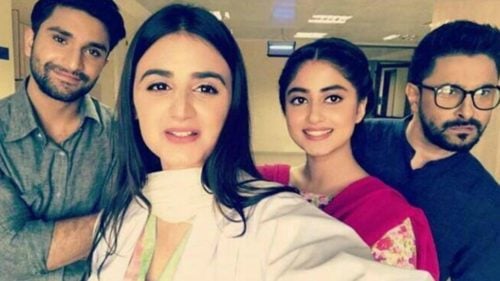
ET: Talk a little bit more about this kind of work that went into Asfandyar. How did you prepare for those tough scenes, the emotional scenes, the ones where Asfandyar breaks down? What was it like crying in front of a ton of people?
Ahad: It’s tough. But I have to give my theatre training some credit. When I was in my final year of acting in school, there was an exercise where you have to laugh hysterically and then end up crying. And it was a weird exercise, many people couldn’t do it, couldn’t get it. So I don’t know what it is about making yourself completely open and vulnerable in front of people – that just kind of numbs everything out. For YKS, I had the time to sit there and think about my brother, the way Asfandyar is feeling emotional about his brother. I love my brother very much, and I haven’t seen him in two years. A friend of mine had died at 22 from a medical condition. So I unfortunately had some incidents where I could think of. It’s difficult talking about it. I was sitting there trying to do that scene and thinking about my brother and a tremor sort of went through me, something that was there in my chest. I don’t know. I’m a very emotional guy.
ET: But that’s a good thing, isn’t it? Being an emotional guy means being a great actor?
Ahad: I read that Yaqeen Ka Safar has become one of the most highly watched Pakistani dramas ever. And I started crying. Because I was like, “Man, I wanted this to happen and this is happening.” And yeah, as an actor you have to be emotionally available. I have realised that the good actors are the ones who don’t look like they’re acting. Their emotions, whether or not they feel them, they make it look like they are THEIRS. So yeah, you have to be willing to go there. So the fact that I put myself in emotional stress so the viewer has something authentic to witness – so when it pays off, it’s great. That’s why people say, I guess, that acting is a tough job. It actually is.
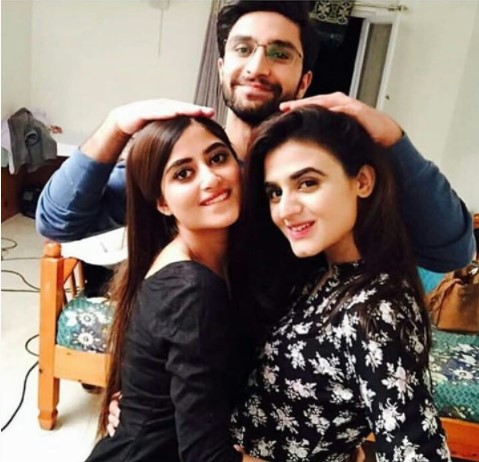
ET: I think that’s amazing. You remember dialogues, you get so invested. How difficult is it to disconnect from a character then?
Ahad: That’s the exhausting part. It’s physically draining. It’s easier when my family is around. When I come home to my dad and my mom, it’s much easier to let go of the person I was playing – it’s difficult when you’re alone. When I was shooting in Kashmir I would just go back to my little room. All I did was work there. I’d go back to the room and just look at the script. Maybe that’s another why Asfandyar has done so well - because I never really dropped the character until we were finished.
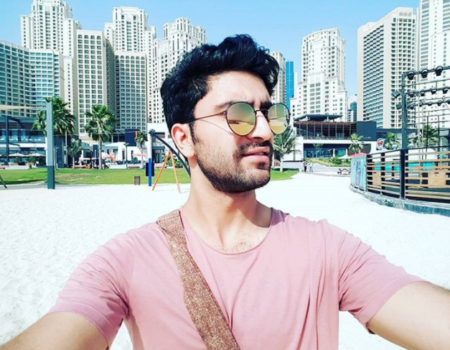
ET: In the future do you plan to take on lighter roles? Do you plan to do negative roles?
Ahad: These days I have been hearing that they’re calling me a ‘romantic hero’ and I never thought I’d ever be called that. I just want to do things differently. Whatever people have seen on TV or film in Pakistan so far, I want to do that yes, but differently. The negative or positive doesn’t matter – it’s the circumstances. For example, if someone comes up to me and says we want you to take up a character that has cerebral palsy and has 15 lines in the whole film. I’d say yes right there. Because, when would I get that opportunity again? As an actor, perhaps I’m quite selfish. I want to do things that are different - that make people go ‘wow’. I don’t want people to think that he can only be a hero. Although that is what it is and that’s fine. I want people to look at me and think we can fit him anywhere, he’s like clay, we can mold him whichever way for the role we want.
ET: Every actor has some internal philosophy. For Akshay Kumar, say, who once said he was satisfied by just doing movies, regardless of their script and whatnot, because he had bills to pay. But a lot of actors didn’t compromise on that. What satisfies you?
Ahad: I’m just figuring this out I think. Being a theatre actor to begin with, I want to do characters that touch the audience. But obviously, the profession I’m in now has the ‘commercial’ element to it, the ‘showbiz’ element. People tell me, don’t do any negative roles – so I have to be a bit careful. I’m getting a lot of scripts at the moment, and I’m very lucky that that’s happening. But in the position that I’m in right now –I have the luxury of choosing what I want to do and think about it. I think there has to be a compromise of some sort.
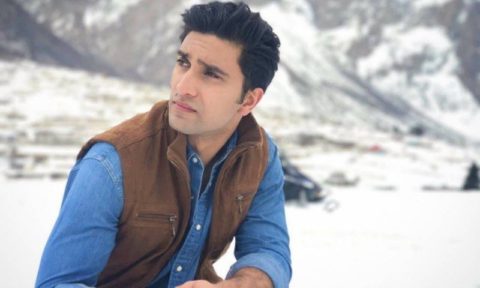
ET: But it’s going to be a good compromise?
Ahad: Yes, definitely. But I’ll be careful for a bit. Pakistan has very few or no romantic heroes. Fawad was there but he’s not been working on a lot in dramas. Yeah so with time I’ll find that groove I guess and I’ll do it all.
ET: Action too?
Ahad: Yes, action too. I’ll do it all. Everything!
ET: We saw you singing a bit in Yaqeen Ka Safar. So what’s on the cards in that regard? Any albums coming out? Maybe a duet with Sajal?
Ahad: (laughs) That’s not a bad idea! I have done musical theatre; I have a history of that in Canada. I’m the first desi actor to win ‘best actor in a musical’ at the Canadian Critics’ Awards. I don’t classify myself as a singer though. I think an actor should know as much as he can. Every month I try to learn something new. Last month I tried learning a West African drum called djembe. I try to learn different languages, painting etc. Because you never know. What if someone comes to you and says, this is a serious film but you gotta play the drums in it. And I can say. Yeah. I know it. Let’s do this. It’s an actor’s responsibility to expand their skill set.
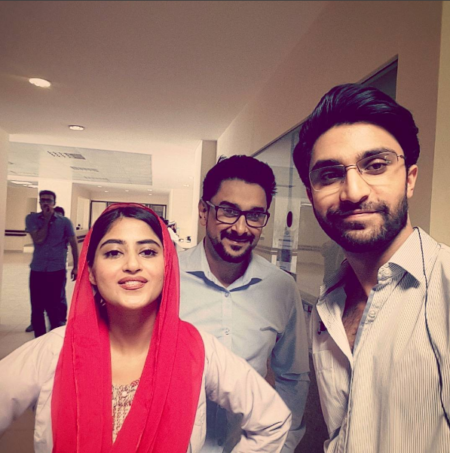
ET: Are there any negative experiences that you’ve had so far that have annoyed you or made you wish they could be fixed so things could get better on set?
Ahad: There’s a lack of professionalism sometimes. And then what happens is that the people who are professional get frustrated. But it’s changing. If someone asks me to come at 9 at the call time, I’m there at 8.30. I had learnt some qualities in Canada which I was starting to forget and my father reminded me, asked me, ‘why did we send you to Canada if you have forgotten those habits and have let go of them’. So I caught myself again, went back on track. I also feel people put down the new guy a lot. I’m new; they think I don’t know anything. If it’s happening to me, I’m sure it’s happening to other people my age too.
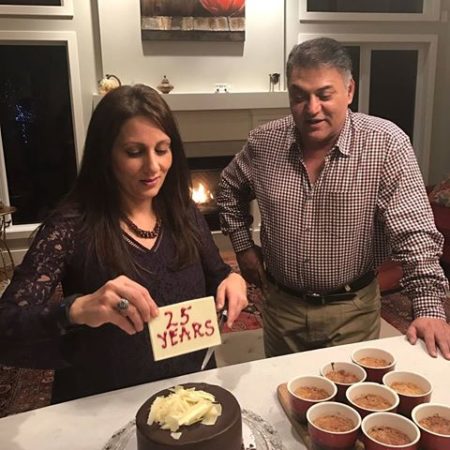
ET: Would you want to venture into Bollywood/international cinema?
Ahad: I have two aspirations actually. When it comes to Bollywood, I’d say any actor should look at an international scale. Bollywood actors are going to Hollywood – it’s fair to say that Pakistani actors should be in Bollywood and vice versa. But another responsibility I have is to push things forward. Collectively we can make a lot of things different about Pakistan. That’s also a responsibility we all have. People have a lot of messed up conceptions about Pakistanis internationally. When dramas/films come out, I send them to people in Canada. I recently was in a fashion show [Ahad walked the ramp along with Sajal Aly at a recent fashion event in Pakistan]. It was brilliant. I had not even imagined that Pakistan could do something so fantastic in terms of fashion and ramp shows. So I think it’s our responsibility to showcase to the world how brilliant we are. I think we’ve got a bad reputation for the wrong reasons. This is my responsibility as a Pakistani to help change that.
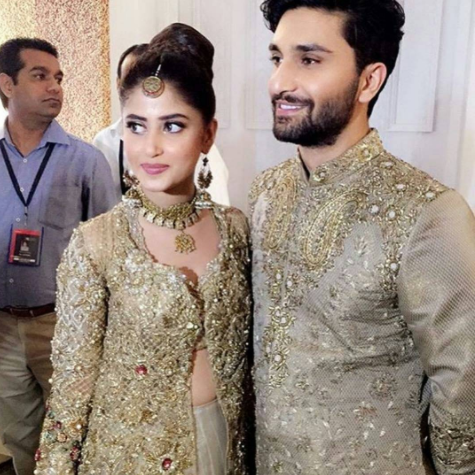
ET: Are there any films or dramas in the Pakistani industry you liked in the recent past?
Ahad: Muqabil was one of my favourite dramas of the year. O Rangreza too; Kashif Nisar is a great director. The way that he’s created this word, it’s amazing. It’s a joy to watch. Bilal and Sajal are wonderful in it.

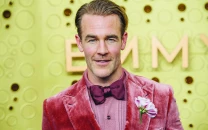
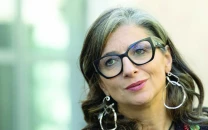
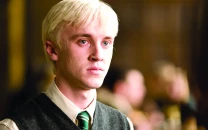

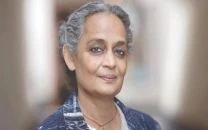
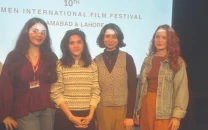












COMMENTS
Comments are moderated and generally will be posted if they are on-topic and not abusive.
For more information, please see our Comments FAQ